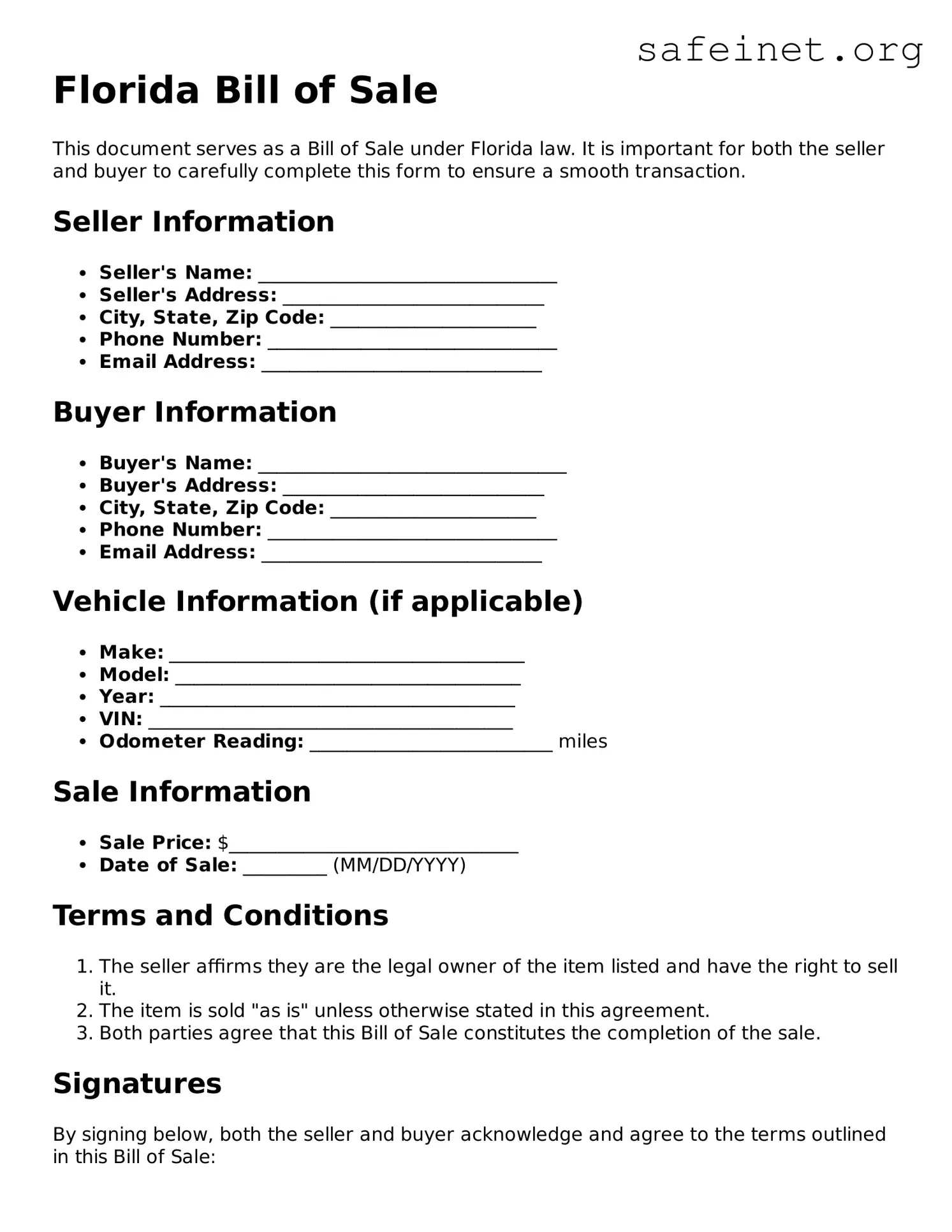What is a Florida Bill of Sale?
A Florida Bill of Sale is a legal document that provides evidence of the transfer of ownership of personal property from one person to another. This document typically includes important details such as the names of the buyer and seller, a description of the item being sold, the sale price, and the date of the transaction. While it is not required for every transaction, it serves as a valuable record for both parties involved.
Is a Florida Bill of Sale required for all sales?
No, a Bill of Sale is not always required in Florida. For instance, when selling items of significant value, such as vehicles or boats, a Bill of Sale can help establish proof of ownership and protect both the buyer and seller. In other cases, such as casual sales of low-value items, a Bill of Sale may not be necessary but is often recommended for documentation purposes.
What information should be included in a Florida Bill of Sale?
A comprehensive Florida Bill of Sale should include the names and addresses of both the buyer and seller, the date of the sale, a detailed description of the item being sold (including any identification numbers, such as VIN for vehicles), the sale price, and the signatures of both parties. Including any warranties or conditions of the sale is also a good practice to avoid disputes later on.
Can a Bill of Sale be handwritten?
Yes, a Bill of Sale can be handwritten as long as it includes all the necessary information. However, for clarity and professionalism, it is often advisable to use a template or form that clearly delineates all required details. This can help ensure that nothing is overlooked and make the document easily readable for both parties.
Is a Bill of Sale enough to prove ownership?
While a Bill of Sale serves as important documentation of the transaction, it alone may not be sufficient to prove ownership, especially for vehicles or other registered items. Additional paperwork, such as a title transfer for vehicles, may be required to complete the ownership transfer process legally. Always check with local Department of Motor Vehicles (DMV) and other applicable agencies for specific requirements.
